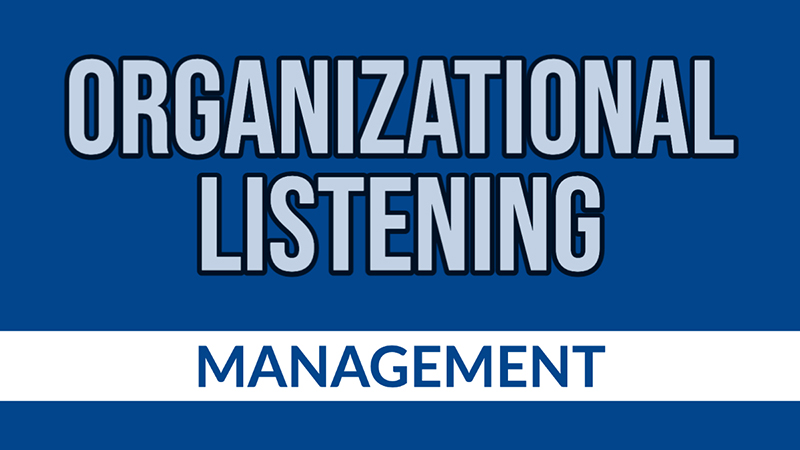U.S. employees not satisfied with listening efforts of management
October 25, 2021

By Marlene S. Neill, Baylor University and Shannon A. Bowen, University of South Carolina
Women and lower-level employees working in U.S. organizations are not satisfied with management’s efforts to listen to them and they are often hesitant to offer critique or insight. These findings are based on a survey of 300 U.S. employees conducted in July of 2020.
The study, “Employee Perceptions of Ethical Listening in U.S. Organizations," was sponsored by a grant from the Arthur W. Page Center and the results were recently published in Public Relations Review.
Are organizations truly listening to employees across all levels? When assessing employee perceptions regarding listening, some of the lowest scores were related to the items “my organization asks the opinions of people like me before making decisions” and “my organizational really listens to what people like me have to say." Alienation of the workforce can result in increased turnover and hiring costs for any type of company.
We also identified some real barriers and challenges for listening. One significant barrier was identified based on responses to the following question: How often do you keep quiet about a flaw, problem, concern or brewing issue in this organization because you do not want to be the person to deliver bad news?
The responses are reason for concern showing that frankness may not be valued as 25 percent answered sometimes, 22 percent chose about half the time, 26 percent chose most of the time, and 13 percent selected always.
Their responses especially make sense considering that both nonmanagers and managers agree that complainers are not listened to in their organizations and perceive that leadership is not genuine regarding their interest in listening.
Our data show that employees can intuitively perceive and identify inauthentic approaches to listening (“faux listening”). Particularly troubling was our finding that employees were reluctant to share concerns. Early identification and resolution of problematic issues no doubt suffers when employees are afraid to speak up.
The state of ethical listening in U.S. companies and organizations needs immediate attention. Specific deficiencies include a lack of communication employees who are trained in data collection and analysis and a lack of time and resources to ensure the information is properly shared internally with those who need the information for decision making.
As more focus is placed on strategic and ethical listening throughout organizations, means of offering feedback opportunities should be examined and expanded when possible.
If employees believe that their feedback is sought and welcomed, they are more likely to engage in dialogue with management. When organizations offer concerted and formal methods for feedback, as well as listen informally among stakeholders, many new avenues for strategic problem solving can be identified. Ethical listening requires the moral sensitivity to openly consider the views of others and, when needed, act on that information. In so doing, any organization can be more effective and lower employee turnover while increasing control mutuality, commitment, satisfaction, and trust.
Regarding the demographics of the participants, 40 percent of our sample were managers and 60 percent nonmanagers; and 50 percent of our sample were men and 50 percent were women; one participant selected "other."
Among the participants who identified themselves as managers, 14 percent were top/executive level, 18 percent were mid-level management, and 7 percent were lower-level management. Most of the employees worked for their current employer for less than five years, 40 percent for between six to 15 years, and 17 percent for 16 years or longer.
Neill has been a research fellow with the Page Center since 2018 and a Center scholar since 2015. She is an associate professor in the Journalism, Public Relations and New Media Department at Baylor University.
Shannon A. Bowen is a Page Center Legacy scholar since 2012 and Professor in the College of Information and Communications at the University of South Carolina.
This project was supported by a Page/Johnson Legacy Scholar Grant from the Arthur W. Page Center at Penn State University.

